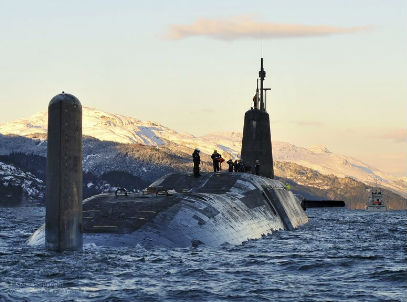Lenin’s quote that, “there are decades where nothing happens; and there are weeks where decades happen”, is certainly getting a workout in articles about Corbyn’s victory, but it is now also applicable to the current debates on Trident.
Seemingly out of the blue, both the UK Conference and Scottish Conference will be able to have the topic of our “independent” nuclear deterrent up for discussion, when it’s been deemed strictly out of bounds for decades. The leaderships of both the Scottish and UK Labour parties should be congratulated on opening up this for debate.
It is welcome and represents what will hopefully be a longer-term shift in opening up policy within the party at all levels, allowing us to build an inclusive and democratic mass party.
In the shorter term though, changing the Party’s position on Trident – to one that would oppose renewal – would be a massive step forward. As well as the moral arguments against owning weapons of mass destruction, the financial argument of saving billions that could be re-invested in job creation and defence diversification would fit in with our repositioning as the only major party that is genuinely anti-austerity.
In Scotland this would be particularly helpful for Labour to rebuild. The SNP/Yes campaign placed opposition to Trident renewal as one of the central pillars to their project, and was duly rewarded by the electorate. Across the UK, Labour is about 100 seats behind the Tories, and if there is any hope of winning in 2020, we will need to claw back at least some of the 56 seats in Scotland that turned yellow in May.
Labour didn’t lose for being too left-wing, but for not being clear enough on major issues. By taking a clear stance in favour of unilateral disarmament Labour will shift the entire framework of the debate, and the votes at UK and Scottish Conference over the next few weeks could be the next step towards winning in 2020.
Martyn Cook is a member of Labour CND and was recently elected to the National Policy Forum representing Scotland.

